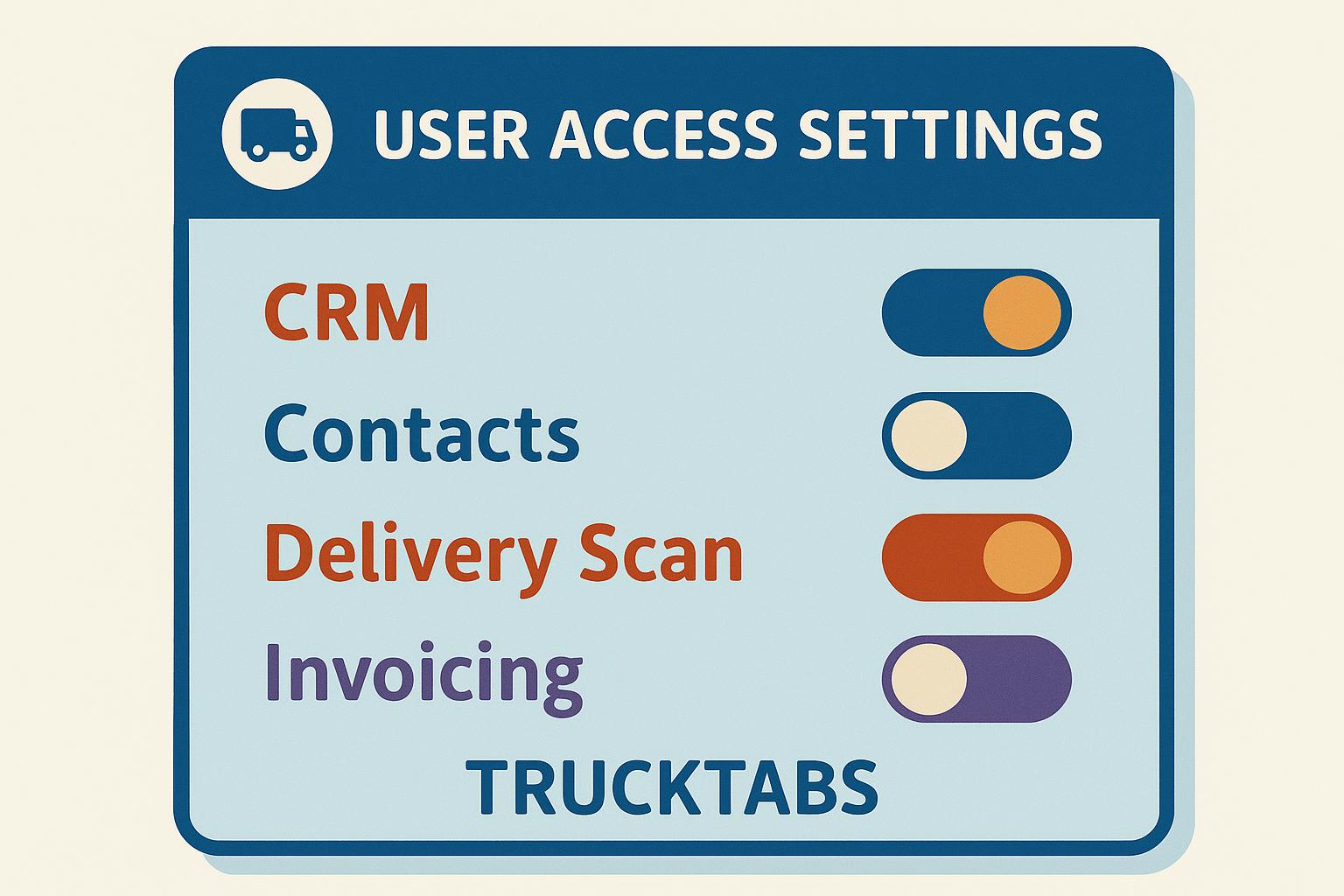Introduction to TMS User & Access Controls
In the fast-paced world of trucking, effective dispatch management is critical to keeping operations running smoothly. A Transportation Management System (TMS) equipped with robust user and access controls can significantly enhance the efficiency of dispatch teams. By leveraging account-level and group-based user management, dispatch leaders can assign precise roles that cater to the diverse needs of their team, from trip access to invoicing.
Understanding Account-Level vs. Group-Based User Management
Account-level user management allows dispatch leaders to assign specific permissions to individual users. This means that each team member can have tailored access according to their role. For example, a dispatcher might need access to trip data and routing, while an accountant may only require access to invoicing and financial reports.
On the other hand, group-based user management enables dispatch leaders to create roles that encompass multiple users who share similar responsibilities. By grouping users together, leaders can streamline the management process, ensuring that updates to permissions can be applied broadly without the need to adjust individual accounts.
Benefits of Granular Permissions
The use of granular permissions within a TMS offers several key benefits for dispatch teams. First and foremost is the enhancement of internal controls. By limiting access to sensitive information, dispatch leaders can mitigate risks associated with data breaches or unauthorized access. Furthermore, with clear delineation of roles and responsibilities, accountability increases, leading to improved operational efficiency.
Additionally, having precise control over user permissions allows for more efficient training and onboarding of new employees. New team members can be granted access to only the information they need to perform their jobs, gradually expanding their access as they become more familiar with the system.
Implementing Effective User Management Strategies
To implement effective user management strategies, dispatch leaders should start by assessing the specific needs of their team. Understanding who requires access to what information is crucial in defining roles. Regular reviews of user permissions are also essential to ensure that access remains relevant as team dynamics change.
Additionally, fostering a culture of security awareness among dispatch team members can further enhance the effectiveness of user management strategies. Regular training sessions on the importance of data security and the implications of unauthorized access can help reinforce the significance of adhering to established access controls.
Conclusion
In conclusion, the implementation of granular permissions through TMS user and access controls provides dispatch teams with the ability to streamline operations while preserving internal controls. By adopting a structured approach to user management, trucking companies can enhance accountability, improve operational efficiency, and ultimately contribute to a more secure and effective logistics environment.










